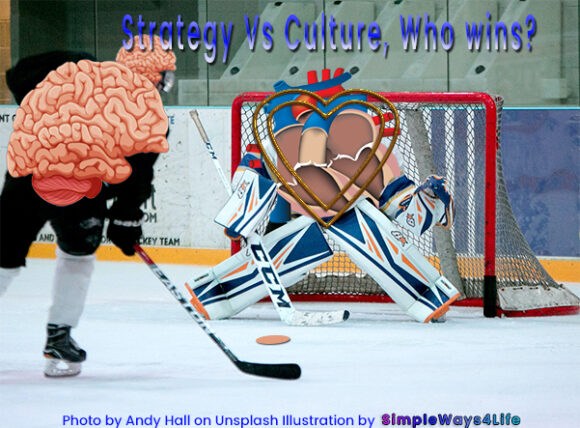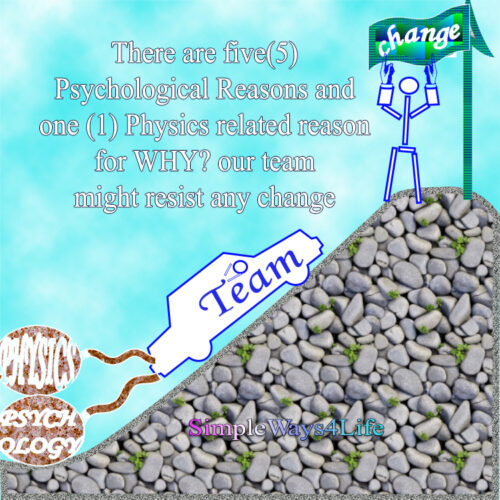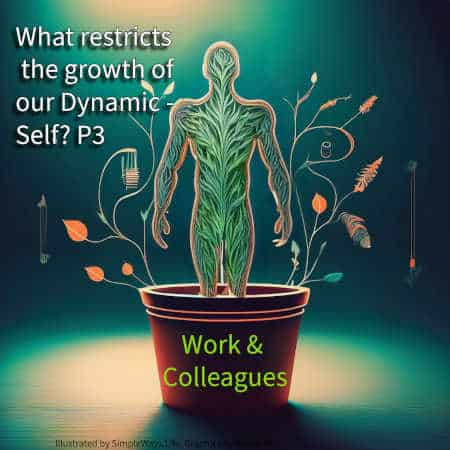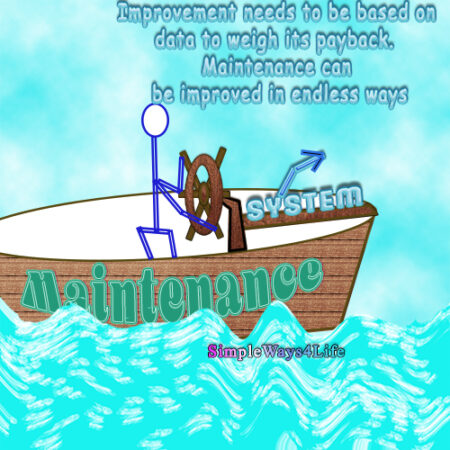That’s a situation where it is better to have no winner. This talk was inspired by a question in a PMI (Project Management Institute) zoom meeting. The question says: Do you believe that culture is more important than strategy? The default answer is that we recommend that the strategy and its synonyms dominate the workplace. Why? you can find an in-depth answer in our talks about Strategy, functional strategy and North Star in the below videos. However, this doesn’t mean that we want to defeat the culture, Why?
What do we mean by the synonyms of the strategy?
Literally Strategy has a lot of synonyms Action, approach, blueprint, design, game plan, method, plan, planning, policy, procedure, program, project, scenario, scheme, system, angle. You can see that all those synonyms of strategy implies the way of doing things. The literal meaning of strategy: a long-range plan for achieving something or reaching a goal, or the skill of making such plans. So it includes the goal and the plan that we shall implement in steps to reach this goal.
Mainly we focus on the tasks, goals, plans, milestones or functional strategy. When their origin is the organization strategy, then, they represent its variants based on your position in the organization. If you are in the managerial level, you might see the strategy as a plan, a project or a policy. When you are on the execution side, it is procedure or a method that you will execute. While the board will see the strategy as a blueprint or a game plan.
What about culture?
Culture is different from strategy in the sense that you will find more definitions and synonyms related to life than to business. One of the definitions of organization culture is : the ideas and ways of working that are typical for an organization, and that affect how it does business and how its employees behave. So the organization culture is how you do the work? And the context of doing the work.
Basically culture is more related to humanity experience in general. It describes how people life in different societies even within one city. The life definition of culture: the way of life of a particular people, esp. as shown in their ordinary behavior and habits, their attitudes toward each other, and their moral and religious beliefs.
The key word is “ordinary”
So if you are not in full attention, you will return to your ordinary behavior. You ordinary behavior stems from your culture. It is shaped by your interactions to people around you and the behaviors you gain subconsciously from them.
So, in case that the strategy come up with a protocol to follow which is different from the culture of the team; It should start by a culture change program first. After, the team culture is changed then, they can apply this specific strategy that might be different from their original culture.
Culture and strategy within the organization’s body
It was a nice analogy from one of the participants. If we consider the organization as a body, then strategy is the brain and the culture is in the heart. They go hand in hand with the body. But in case that they are not aligned or harmonized on the same values, believes and targets, they will be on fight at every step.
When your mind advice an idea, your heart might refuse it and you feel frightened to death from doing it. This might be a true inspiration from the heart or it might be just an alarm that you are going out of the comfort zone. On the other hand, when your heart whispers an inspiration to you, the mind might bring evidences from here and there that this is a wrong inspiration. The brain needs to see clear steps and justifications for every move. Those steps are by default written in the strategy. While the heart might just feel delightful or afraid without a solid clue.
In case the mind is biased to a clearly written strategy and tries to enforce it, the heart might just give a bland or tasteless feeling towards it. This bland or unexcited engagement is like a silent protest that after some time, you loose interest, engagement and might stop doing those strategic actions that you never believed in.
That’s not necessary a clue that the strategy is wrong but just it isn’t matching with the culture. The team couldn’t reach to the feeling that those strategic actions are regulars, acceptable or engaging so they can accept and follow them regularly.
How to enforce the strategy to be the winner?
Forcing the plans and goals that have no buy-in from the team might create resistance and disruptions. It is like you want to separate the brain or mind which is the brain while thinking from the whole body. Then you generate a struggle between the body lead by the heart vs the mind. The body lead by the heart is not a fighter. It is a defender or a goalkeeper just wants to protect his “regular” territory.
Think of a little child whom you want to start using a spoon to feed himself. The child was used to be fed by elder members of the family. Now it need to have control over a lot of muscles in his hand and fingers to complete this mission. Moreover, the spoon must end inside his mouth which he can’t see in this moment. So, the target is not clear, he need to sense it, feel it, aim to it, then end his movement with the spoon inside it. This needs some training, patience, encouragement and consistency. Not every child response to this training process equally.
That’s a demo of a cultural change. To create a culture change or even an alignment with the organization strategy you need training, patience, encouragement and consistency.
So, if the strategy and culture are not aligned then the strategy won’t win. The only way is to focus on a culture change plan to align the culture with the strategy. Like this the strategy and culture wins. Other than that, culture will always dominate i.e. wins
In Conclusion of the strategy vs culture game,
Strategy and culture need to move hand -in-hand. If one of them is on a different rout we need to align them together. Otherwise, you will be like the famous Tesla car which has 2 motors but one is pushing forward and the other is pulling backward. Do you know that to brake heavy loads while moving down, you might inject current in the motor in the opposite direction or operate the reverse movement to stop the forward one. So, the misalignment between strategy and culture will brake the forward progress towards the goals.
If you feel you need help with any of these ideas we discussed, request a Management Consultancy or Coaching Services From our Store








